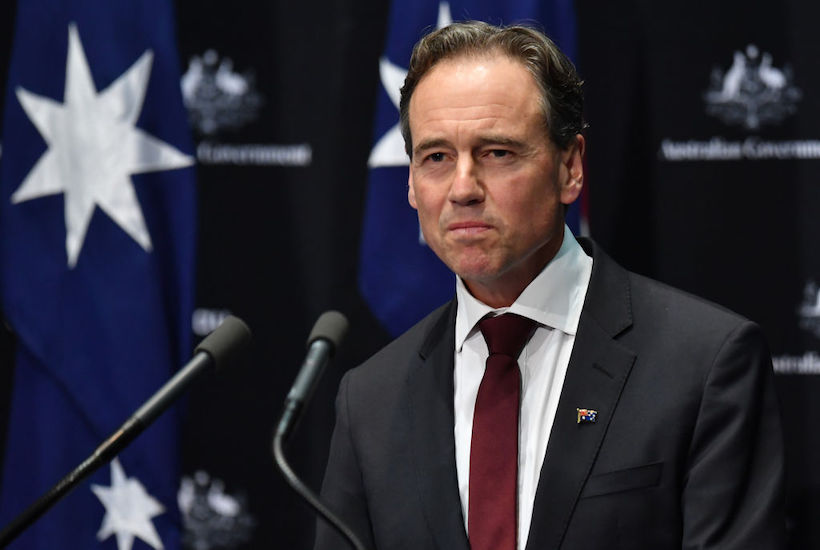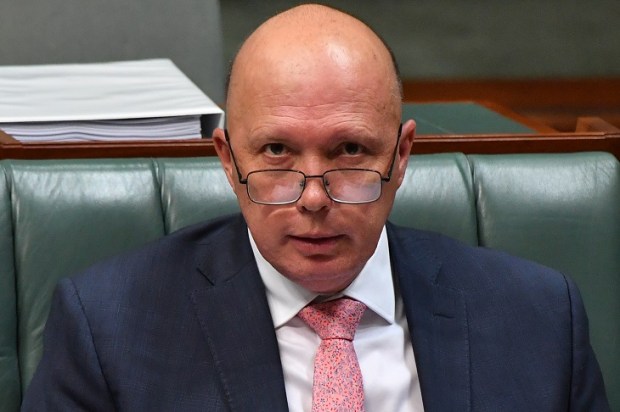Over one year ago, I authored a column in these very pages for The Spectator Australia. In that column, I registered my observations with readers by declaring my views that state and federal Australian governments care not for the human rights of nicotine users that rely on non-pharmacological smoking cessation methods.
In fact, I recall correctly that I referred to the sentiments related to smoking and nicotine use in this country as a “quit or die” scenario which forces users of the drug into statuses of second-class citizens.
I also wondered: when will there be relief for users and members of the country’s tenuous vaping industry? Then I was notified of the most recent round of news which seemed like a sign of relief at first glance. Yes, “relief.”
Is it, though? Just days before going into force, Federal Health Minister Greg Hunt announced his intent to hold off on an import ban on nicotine-containing vaping products. Facing sharp criticism from several back-benchers, the decision to delay the implementation of the policy is a strong indication of why draconian nicotine regulations are unpopular among some in the multi-partisan ranks of Parliament.
However, you don’t need to be in touch with the happenings in Canberra, nor the Department of Health, to identify the bad policy that completely negates years of scientific evidence related to drug harm reduction. As a journalist, I find it crucial to disseminate further the information regarding the many reasons behind lousy policymaking, including the proposed importation ban on vaporized nicotine.
The delay, to begin with, is very straightforward. Initially, the July 1 rule emboldened federal border authorities to prevent, seize, and punish people for the importation of nicotine. Such fines include penalties valued up to an astounding $222,000. By its design, the Department of Health will dismantle the foundations of an already risky industry permanently. The delay that Hunt announced over the past few days luckily holds the ban’s implementation date until January 1, 2021— a full six months. Until then, Hunt promised, the Therapeutic Goods Administration will further review policies related to nicotine’s status as a so-called poison when used in forms other than medicinally prescribed smoking cessation therapies. The only way to import nicotine vapour products, under the new regulations, is by obtaining such a prescription from a medical professional to use a vaporizer as a means to quit smoking. That will likely be the case in January, too.
Note, the policy virtually prohibits all forms of vapour nicotine products and is a demonstration of paternalistic policies set in place by drug war tactics. Prohibition, even by any other name, is still prohibition.
Nicotine use rights and having the ability to have access to risk-reduced products as an alternative to cigarettes should be a no-brainer for the country’s so-called world-renowned tobacco control efforts. It’s ironic, though, that even when delays in policy are announced, you still can expect the policies and programs to have a “soft launch” that can be felt almost immediately. In an ideal scenario, barring labelling and plain-packaging regulations, the best course of action would to further expand the availability of domestic vaping products while reaching a middle-ground with industry and public health stakeholders on the points of contention related to not just importation, but appropriate taxation, sunsetting illicit and grey markets that circulate wholly unregulated products, and adopting more comprehensive safety-net policies that respect individual autonomy, alternatives to cigarettes, and competitive enterprises.
If anything, I implore Mr Hunt to consider the words of nicotine users. Even if these individuals vape, use oral tobacco products, or smoke, they’re still humans that are entitled to the self-determination in how they live their lives and treat their bodies.
Again, Mr Hunt and tobacco control zealots should too be open to all related experiences governments gave had with tobacco harm reduction strategies. To note, the United Kingdom has fully integrated recreational nicotine-containing e-cigarettes into their long-term tobacco control strategies as non-therapeutic smoking cessation methods. While vaping has also had a challenging time in countries like the U.S. and Canada, public health agencies in both countries recognize at least the potential characteristics of e-cigarettes as cigarette smoking cessation interventions in some form or another. The Swedish experience with oral tobacco products like snus also provides lessons in how widespread liberalization of smoke-free alternatives can benefit adults of all walks of life.
And, Mr Hunt, should lastly note that the uptake of smoke-free nicotine and tobacco products among youth is still a skewed statistical phenomenon often based on loaded, voluntary, and anonymous reporting on youth substance abuse trends and behaviours. By no means should youth use nicotine products underaged—nor should nonsmokers or those who aren’t addicted to nicotine. However, that also means teens who use tobacco and nicotine products shouldn’t be demonized for doing so. Policymaking like the importation ban will lead to unintended consequences that include further cases of demonization and stigmatization for nicotine users of all ages and walks of life.
Ideally, Mr Hunt and the Department of Health should withdraw the importation ban for much longer than six months. Maybe 12 months? 24 months? 36?
Instead, domestic policies are so incongruent at the state and federal levels in Australia that there needs to be an interest in expanding access to smoke-free products while further limiting the actual combustible smoking products that kill thousands of Aussies a year.
Michael McGrady is a tobacco harm reduction journalist and a visiting fellow at the American Consumer Institute in Washington, D.C.
Got something to add? Join the discussion and comment below.
Got something to add? Join the discussion and comment below.
Get 10 issues for just $10
Subscribe to The Spectator Australia today for the next 10 magazine issues, plus full online access, for just $10.

























Comments
Don't miss out
Join the conversation with other Spectator Australia readers. Subscribe to leave a comment.
SUBSCRIBEAlready a subscriber? Log in